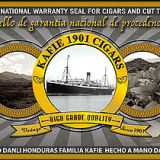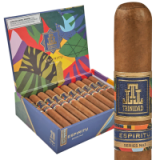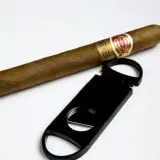Cigars have been around for centuries, and they are deeply connected to many political movements. Since the early 1600s, cigars have been an integral part of political life in many parts of the world. Whether it’s a way for leaders to celebrate their successes or an opportunity to share stories with their constituents, cigars often become symbols of power and influence.
Contents:
The history of cigars is long and varied, but one thing remains constant: the connection between politics and cigars has remained strong throughout its history. From Napoleon Bonaparte’s famous cigar smoking in France to Fidel Castro’s public embrace of Cuban cigars as a symbol of Cuban culture, there are countless examples that demonstrate how politics has shaped the spread and popularity of cigars over time.
One example is how Spanish colonial rule had a profound impact on Cuba’s cigar industry. When Spain took control over Cuba in 1762, they brought with them vast amounts of tobacco which would eventually be used to produce some of the world’s finest hand-rolled cigars. This led to an increase in demand for these coveted products across Europe and North America, further solidifying their place as symbols of wealth and prestige among politicians worldwide.
Another example can be seen during World War II when General Dwight D Eisenhower famously gave out boxes full of Cuban cigars as rewards for soldiers who served under him during his campaigns in Europe. This gesture was not only appreciated by those lucky enough to receive them but also helped popularize Cuban Cigars among Americans who otherwise may not have tried them before due to prohibitive import tariffs imposed by US government at that time.
In recent decades we have seen various governments try to use cigar exports as means for economic development or diplomatic leverage against other countries such as United States’ embargo on Cuba since 1960s which hurt both economies tremendously but ultimately failed given rise in popularity all sorts cigarettes made from different kinds tobaccos across globe.
From Churchill’s famous love affair with Cohiba Robusto Cubans during WWII era up until modern day where Davidoff brand is associated with luxury lifestyle choices – it is clear that political movements play important role shaping cultural significance, production, accessibility & distribution these iconic products.
Impact of Politics on Cigar Culture
In the 19th century, political movements had a great influence on cigar culture. This was particularly evident in Europe and North America, where major revolutions and wars caused huge shifts in social values. For example, after the French Revolution of 1789, cigars became increasingly popular among members of the newly created bourgeoisie class as they sought to flaunt their newfound wealth.
Similarly, in the United States during the Civil War (1861-1865), cigars were used by soldiers as a way to celebrate victories and provide solace during hard times. It was not uncommon for Union troops to pass out cigars after each successful battle or skirmish. In addition to providing comfort for soldiers on both sides of the conflict, this helped spread awareness about smoking cigars throughout America at a time when tobacco was still relatively new to many people.
By the turn of the 20th century, cigars had become so closely associated with politics that certain brands began manufacturing products specifically designed for particular parties or causes. Cuban Cohibas were especially popular among revolutionaries in Latin America while Cheroots manufactured by British companies often bore royal crests on them – symbols meant to signify loyalty towards Queen Victoria’s reign over Britain’s colonies around world. Thus it is clear that politics played an important role in shaping cigar culture throughout history and continues to do so even today.
Evolution of the Habano
The Habano, as the Cuban cigar is known, has gone through a number of changes throughout its existence. The spread and popularity of this smoke owes much to political movements across Latin America. From its earliest days in Cuba, production has been heavily influenced by revolutions and wars that have swept through the region.
In 1831, tobacco began to be commercially produced in Cuba for export abroad after the country declared independence from Spain. This marked an important moment in history for cigars, with a rapid rise in demand due to their newfound popularity amongst European elites and celebrities alike. This boom was further enhanced by reforms brought about by José Martí’s revolutionary government which relaxed import restrictions on imported tobaccos and encouraged local production. As such, many more cigar factories opened up around Havana as it became one of the largest hubs of cigar-making in the world at that time.
It wasn’t until 1959 when Fidel Castro’s revolution overthrew Fulgencio Batista’s oppressive regime that Habanos truly took off internationally due to their association with Cuban culture and politics – becoming symbols of rebellion against imperialistic forces around the globe. As trade embargoes were placed upon Cuba throughout the Cold War era, smuggling rings would transport Habanos into North American countries where they quickly gained immense popularity despite being illegal imports – thus spreading even further than ever before.
Uniting People Through Smoke
In the 19th century, cigars were seen as a symbol of uniting people. As political movements began to gain traction, some saw it as an opportunity to create solidarity among their supporters. By sharing a smoke with someone, members of the movement could express their commitment and show that they stood for something larger than themselves. This created an atmosphere of unity and camaraderie between individuals who shared common goals.
In addition to being used as a means of expressing political beliefs, cigars also served another purpose during this period: providing relaxation in times of stress or worry. People smoked while discussing politics and current events – something which was often very contentious at the time – allowing them to find solace in one another’s company and take comfort in knowing that there were others like them out there who felt similarly about certain issues. It provided a form of respite from the everyday struggles faced by many citizens throughout history.
This practice continued even after revolutions had ended and political movements had dissipated; smoking remained a way for people to bond over similar interests or causes without having any ulterior motives behind it. To this day, there are still communities around the world where individuals gather together simply to enjoy each other’s company while partaking in tobacco products such as cigars or cigarettes; showing how powerful smoking can be when it comes to bringing people together regardless of background or beliefs.
The Changing Face of Tobacco
Tobacco has been an integral part of the political landscape since its introduction in the Americas. During the colonial era, it was a major export crop and a crucial source of income for many colonists. However, as politics have shifted and societies have grown more progressive, tobacco’s reputation has changed significantly.
In recent decades, public health concerns about smoking cigarettes have caused many to view cigars as taboo or even dangerous. While there is some evidence that cigars may contain fewer harmful chemicals than cigarettes, they still remain controversial due to their association with power and wealth. This has led to a shift in how cigar smokers are perceived: from dignified gentlemen to reckless rebels looking for trouble.
At the same time, however, modern technology has made it easier than ever before for people to enjoy cigars without having to take risks or break any laws. Online retailers offer a wide selection of premium-quality products at prices that don’t require breaking the bank–and unlike traditional tobacconists, these stores can be accessed by anyone with access to the internet. With this newfound freedom comes greater acceptance of cigar culture among younger generations who no longer feel limited by societal norms when it comes to enjoying this beloved pastime.
Smoking as a Symbol of Status
Smoking cigars has become a symbol of social status, wealth and power throughout history. For example, wealthy men in Europe during the 17th century used cigar smoking to signify their rank within society. During the 19th century, political movements began to adopt this symbolism for themselves. Communists were known for having workers smoke together as part of a ritualistic solidarity and to create an atmosphere of camaraderie. Meanwhile, right-wing nationalists embraced cigar smoking as an expression of traditional masculinity, with Adolf Hitler being one of the most famous examples of this phenomenon.
The popularity of cigars among political figures also extended beyond Europe in the 20th century. In Cuba, Fidel Castro was renowned for his love of cigars; not only did he make them popular around the world but they have come to be seen by many people as symbols associated with revolutionary fervor on the island nation. The United States also experienced similar phenomena when President John F Kennedy famously ordered 1,000 Cuban cigars just days before imposing a trade embargo on Cuba in 1962.
In more recent times, cigar smoking has been used by politicians from all sides of the ideological spectrum as a way to demonstrate their commitment to certain values or ideas – whether it is patriotism or fiscal responsibility – without actually saying anything directly about those topics. It has even become something that is sought after by everyday smokers who want to experience what it’s like to feel powerful or important through its symbolism alone – without necessarily engaging in any actual politics.
Cigars and Revolutionaries
Cigars have been a part of the revolutionary spirit since the 18th century. During this time, cigars were embraced by many revolutionaries as a symbol of rebellion and protest against oppressive regimes. As the cigar-smoking rebels gained in popularity, their influence spread across Europe and beyond, encouraging others to join their cause.
The iconic image of revolutionaries smoking cigars has become an enduring symbol for those who wish to stand up against injustice. This image was especially powerful during periods when revolutions were taking place around the world – from Cuba’s fight for independence in 1898 to France’s student protests in 1968. In each case, it seemed that wherever there was revolution, there were also cigars being smoked by its supporters.
This symbolism extended beyond just a simple icon: cigars represented an act of defiance against authority and oppression. They became symbols of solidarity amongst those fighting for freedom and justice; they provided hope that change was possible even under oppressive regimes or governments. Smoking a cigar meant more than just enjoying tobacco; it served as an outward sign that one stood with the oppressed people all over the world who wanted nothing more than liberty and justice for all citizens alike.
A Global Phenomenon
The growing popularity of cigars has been a global phenomenon, spreading throughout different countries and cultures. Its spread was heavily influenced by political movements that sought to bring tobacco into their respective regions. This led to a surge in the production and sale of cigars as well as an increased demand for them from consumers around the world.
In Cuba, for example, the Cuban Revolution in 1959 had far-reaching implications for cigar production and consumption. As Fidel Castro came to power, he declared tobacco production essential to the nation’s economy, providing support for farmers and encouraging citizens to partake in smoking cigarettes or cigars. This resulted in an increase of production with higher quality standards being implemented on factories all over Cuba.
Likewise, when it comes to Africa, there was also a large influx of cigar usage due mainly to its colonial history. During this period many European powers encouraged local populations to take up smoking which then saw an exponential growth in both cigar manufacturing and consumption within certain African nations such as South Africa, Nigeria and Algeria.
Overall these political movements have played a major role in popularizing cigars around the globe while at same time shaping cultural trends along with economic opportunities in many parts of world.
Celebrating with a Cohiba
Cohiba cigars are a brand of Cuban cigar that has become one of the most recognizable and sought-after luxuries in the world. This brand is celebrated worldwide as an icon of luxury, sophistication, and class.
A Cohiba cigar symbolizes much more than just a premium smoking experience. The story behind it is deeply rooted in the history of political movements and social reform from Cuba’s past. It all started with Fidel Castro’s revolutionary government which nationalized all foreign-owned companies on the island nation in 1960.
One consequence of this revolution was that many tobacco farmers had to relocate their operations to safer ground outside of Cuba or face prison time for “economic crimes” against the state. This created an entirely new market for Cuban cigars, as well as some enterprising individuals who took advantage of this opportunity to create high quality products at prices lower than those offered by other countries. One such individual was Eduardo Rivera, who founded Cohiba Cigars in 1966 and quickly became known for his commitment to excellence when it came to creating these fine smokes.
Today, enjoying a Cohiba cigar can be seen as a statement against oppression; one where people can come together and share a moment while taking pleasure in something luxurious that would not have been possible before the revolution happened decades ago. Whether you are celebrating success or simply want to treat yourself after a long day, there is no better way than doing so with one of these legendary cigars.











